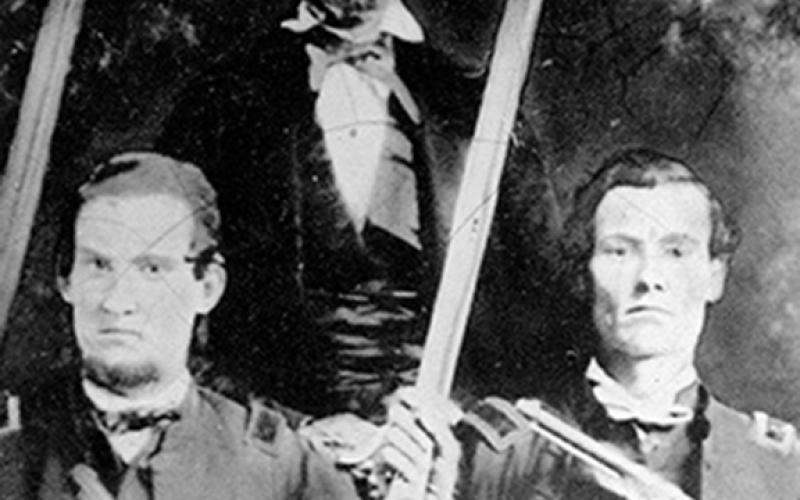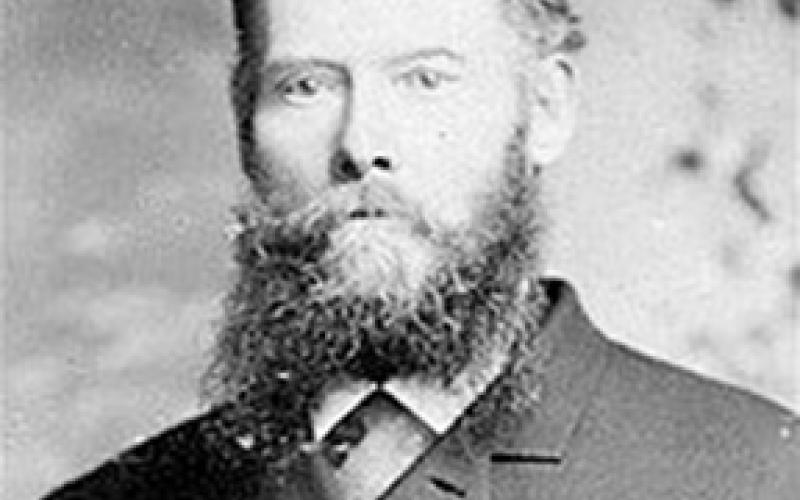 |
The history books are clear. On May 4, 1865, raiders under the command of Union Col. G.W. Kirk burned the Cherokee County Courthouse in Murphy. The reason most cited is pending cases with the paperwork housed within the courthouse on local men who rode with Kirk.
They hoped by burning the courthouse their cases would become null and void. It apparently worked. It would take a couple of years before a new courthouse was in operation.
It is best to judge a man by the times in which he lives, not by modern political correctness. There is more to Kirk than that of a courthouse burner.
George Washington Kirk was born and raised in Greene County, Tenn., oldest of five brothers. In his 20s at the outbreak of the Civil War, and an avowed Unionist as was much of east Tennessee, he was briefly conscripted in the Confederate Army.
Kirk quickly went to the Union side, serving in the 2nd N.C. Mounted Infantry (Union) based in Knoxville, Tenn., often raiding into western North Carolina enlisting Union support, suppressing Confederates, aiding the deserters, and as attributed to most raiders of the day – looting.
Kirk soon became known for his bravery, stubbornness and recklessness, and was rewarded by being allowed to form his own command, the 3rd N.C. Mounted Infantry, numbering 960 men, primarily Southern mountaineers with Union allegiance. They were to perform guerilla operations.
Their raids including exploits like occupying Boone and Asheville, tearing through Burnsville and Morganton, leaving burned buildings, farms and dead defenders behind them. After supporting Stoneman’s cavalry raid into North Carolina in late April 1865, Kirk’s troops, armed with new Spencer repeating carbines, were turned loose on western North Carolina with orders to suppress all remaining Confederate forces in the mountains.
Robert E. Lee had already surrendered in Virginia, Joe Johnston had surrendered to Sherman, but the news traveled slow. On May 4, 1865, Kirk’s troops found themselves in Murphy, with arson on their mind. They succeeded.
After burning the courthouse, the raiders proceeded toward Camp Valleytown to capture the Confederates there. When inquiring about the number of soldiers there, local residents inflated the numbers, declaring the raiders were vastly outnumbered – so much that the raiders decided to head back to Tennessee via Hyatt’s Creek and Hanging Dog. Reality is there were around 15 Confederates in Valleytown.
The pursuers from the Thomas Legion knew the country and anticipated where Kirk’s Raiders would stop for the night. At daylight on May 6, the attack was made, limited by the Confederates only having six rounds of ammunition per man. They fired three rounds during the initial charge, and the remainder at the fleeing raiders. Due to lack of ammunition, they were forced to break off the fight, but only after wounding 11, all who survived. Participants claimed thereafter this skirmish as the last battle of the Civil War.
The following day a wagon of ammunition was delivered to the Confederates, but it was too late. On May 10, Col. G.W. Kirk received the surrender of Walker’s Battalion of the Thomas Legion in Franklin, the last formal surrender of Confederates.
Kirk was not yet through in North Carolina. Five years later, North Carolina was still occupied by Union Reconstruction troops. The last troops would not leave until 1877, and Unionist Republicans ruled in most elected offices.
Many former Confederates were barred from voting, and in 1870 a black man, Hiram Revels of Mississippi, was elected to the U.S. Senate, and three black men were elected to the N.C. General Assembly. In response a campaign of harassment and intimidation was instituted against the recently freed black population, much of this led by the Ku Klux Klan.
N.C. Reconstruction Gov. William Holden would not tolerate such lawless behavior, declaring several counties to be in a state of insurrection, and created the 1st and 2nd North Carolina troops. His choice to command was a man who had already been suppressing the Klan with troops in Tennessee, Kirk.
Kirk took to his new job with enthusiasm, promptly arresting 101 men on suspicion of Klan-related activities, including the sheriffs of Alamance and Caswell County and a former U.S. congressman. The move forced Klan members not arrested to flee, and Klan activity in those two counties ceased.
However, the arrests boosted Democrat political influence and they won control in the next election, impeaching and removing Holden and moving to have Kirk arrested.
Kirk escaped with a U.S. Marshal’s help, served as a police officer in Washington, obtaining success in mining operations, eventually moving to Gilroy, Calif., where he died and was buried.
His deeds in Murphy were not forgotten. Attorney Robert Barker was keenly interested in the history of Cherokee County during the Civil War, and in the devoted years of research into that history (his research hosted at the McClung Library in Knoxville, Tenn.). One of his 1960s goals were to see that a tombstone was erected over the grave of every Civil War veteran buried in Cherokee County.
Legend has it his reach extended in at least one instance to the other side of the country. Barker reportedly had a special inscription put on a small marble stone, small enough to carry in a suitcase. Once completed, he allegedly boarded a plane and flew to California to visit the final resting place of Union raider Kirk.
Once there, he dug a small hole at Kirk’s grave in which he placed his personal contribution of Cherokee County marble to the gravesite, the marble marker Barker had carried to California. Inscribed on the stone: “Here lies the S.O.B. that burned the Murphy Courthouse in Cherokee County NC in May 1865.”
While your author has not visited the site to confirm the story’s authenticity, it is too good a story not to repeat here.
Bruce Voyles’ local history column runs every other week in the Cherokee Scout. Email him at RoadsLessTraveled@cherokeescout.com.


